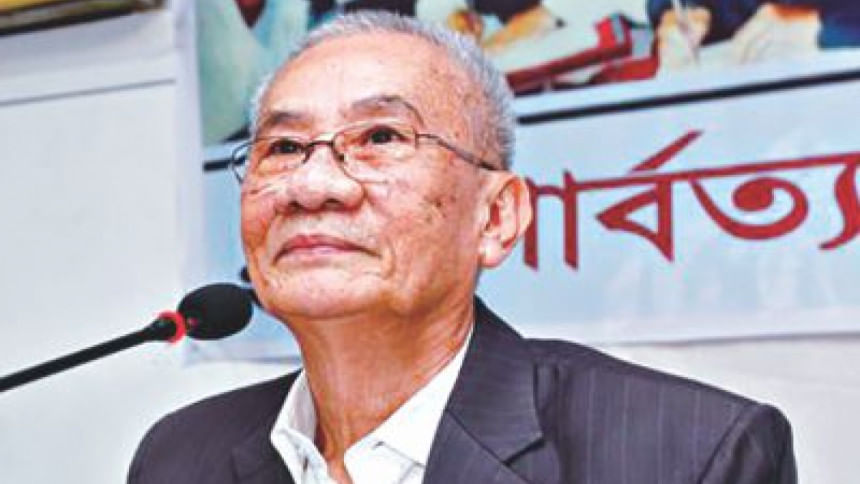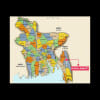Polls mean little to the people of CHT

Parbatya Chattogram Jana Sanghati Samity (PCJSS) Chairman Jyotirindra Bodhipriya Larma, also known as Santu Larma, yesterday said the upcoming parliamentary election meant little to the country's indigenous people because of bitter experiences in the past.
Saying that a new government will be formed through the polls, he added, “However, the nature, thinking, and outlook of the country's ruling class can easily be analysed in light of the fact that the CHT [peace] accord has not been implemented yet and has been kept hanging.”
Larma made the statement at a discussion titled “Twenty-one Years of the CHT Accord: Implementation and Electoral Expectations” organised by Jatiya Nagorik Uddyog, a civil society platform, at the Krishibid Institution Bangladesh in the capital.
The discussion was organised to mark the 21st anniversary of the signing of the CHT Peace Accord.
The peace accord was signed between the PCJSS and the ruling Awami League government on December 2, 1997 to establish peace in the region which was witnessing an armed conflict.
In terms of participation, Larma said his party men would not boycott the election and would take part in it to defeat the ill-intentioned elements in the region.
“We will participate in the polls so that those who may act against the interests of the region's people and emerge as anti-peace accord cannot win,” he added.
He, however, cautioned his fellow indigenous community people not to expect an end to their struggle due to the election.
On the peace accord, he said as part of one of the key components a regional council and district councils in three hill districts were established for a “special ruling system” in the region.
However, the district councils were not fully functional because they were being run by selected representatives of the ruling party, he said.
Furthermore, the Chattogram Hill Tracts Regional Council was not effective as due rights were not given to the responsible individuals, said Larma, the council's chairman.
He said, as a chairman, he was entitled to a national flag-bearing car and there was also a national flag in his official residence due to his position.
“The chairman [of the Chattogram Hill Tracts Regional Council] does not have power even more than a police constable posted in the CHT region or a soldier,” he added.
He blamed the government for “creating some factions of armed groups in the region for its own interest.”
Addressing the discussion, noted rights activist and CHT Commission Co-chair Sultana Kamal said the peace accord had not been implemented fully because those who were supposed to implement it did not want to do so.
Blaming the two major political parties for this, she said one party did not even want to accept the accord while the other one, which was involved in the signing, had gradually distanced itself from implementing it.
Chairing the discussion, noted columnist Syed Abul Maksud said the key issue of the peace accord was to empower the region's people and without it the pact would be useless.
He also called upon the country's major political parties to make time-bound pledges in their election manifestos over implementation of the accord.

 For all latest news, follow The Daily Star's Google News channel.
For all latest news, follow The Daily Star's Google News channel. 








Comments